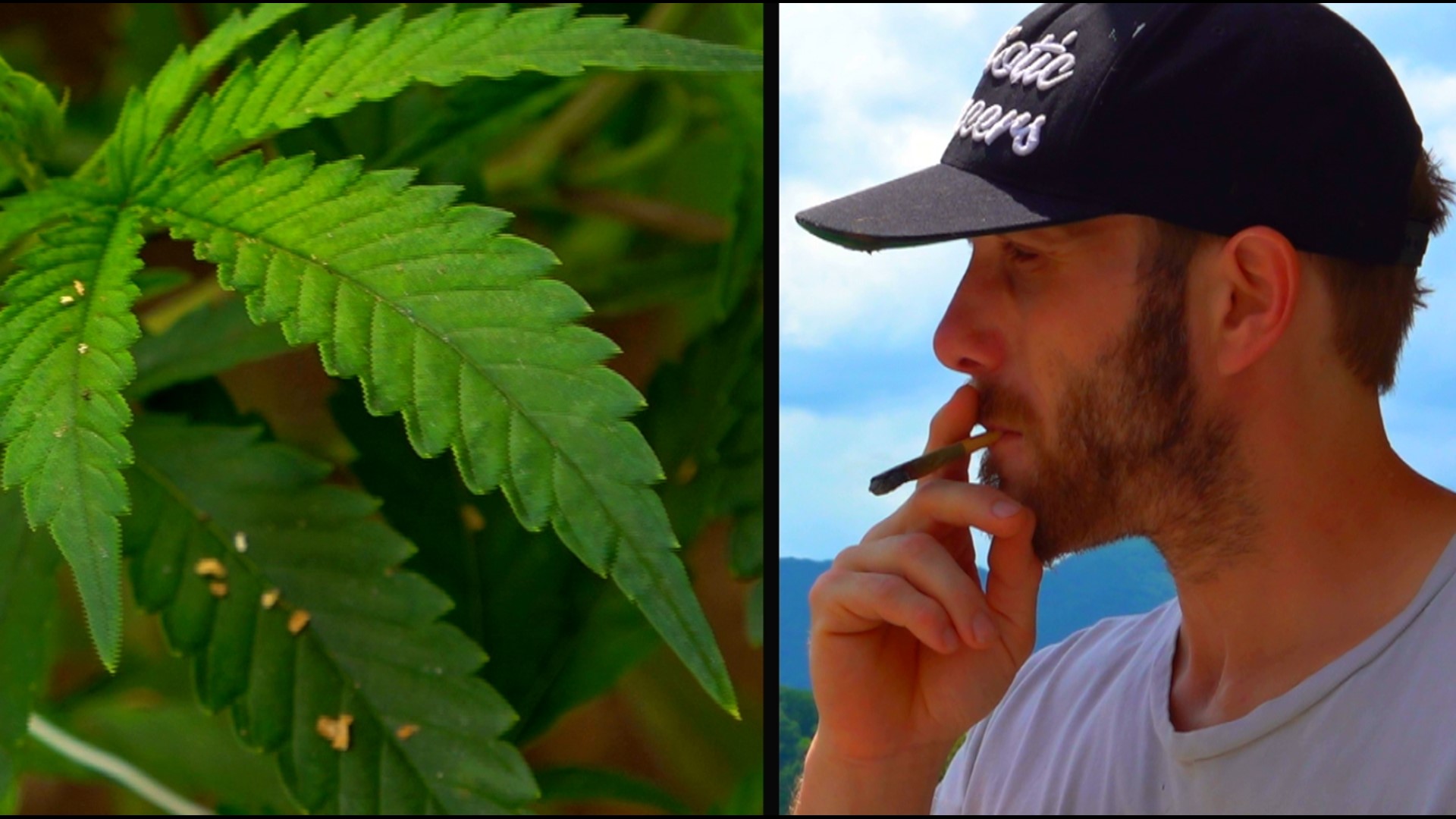BLOUNT COUNTY, Tenn. — In the hills of Blount County, Ryan Rush grows legal hemp at his farm and creates products from his crop, including flower, edibles, and pre-rolls containing no more than 0.3% Delta-9 THC.
Successful hemp farmers are making good money right now due to high demand for their products because people know they can now get their hands on legal THC products with Delta-8 that can produce a high in Tennessee -- even though marijuana is illegal -- because state laws don't specifically outlaw or regulate most forms of hemp-derived THC.
“Everything is cannabis,” Rush said. “Even the mumbo jumbo legal word ‘hemp’ is still cannabis.”
Rush grows his hemp indoors for consistency, using heat lamps, fans, and humidifiers to keep the room at 77 degrees with 55% humidity.
“[Indoor grows] do require a lot of setup, they do require a lot of energy consumption, but you also come out with a far superior product,” Rush said.
According to Rush, hemp matures six to twelve weeks after it’s planted.
“Pretty much every hemp plant, if left long enough, will go hot,” Rush said.
A “hot” hemp crop is anything over the legal amount of 0.3% Delta-9 THC as stated in the 2018 Farm Bill signed by former President Donald Trump.
Rush commissions a local lab to test his THC levels every week to ensure the product remains legal as grown.
“I know where my THC levels are at so I know when to call the Department of Agriculture to set up my testing for my main crops,” Rush said.
All “hot” crops are destroyed, but if the hemp stays under the 0.3% threshold for Delta-9 THC, it is ready for the next steps to produce products that can provide a legal high by concentrating Delta-8 and other legal cannabinoids in hemp.
“We process it, extract it, create a concentrate with it, we then get that concentrate tested and then we make retail products with it,” Rush said.
Rush makes legal-limit Delta-8, Delta-9 Delta-10, and other THC products from his hemp.
Rush is confident his products are safe for consumption when taken responsibly, but Tennessee Sen. Richard Briggs of Knox County said he believes hemp-derived cannabinoids like Delta-8 are too widely available across the state.
“Tennessee right now really has no restrictions on Delta-8,” Briggs said. “You can buy it in convenience stores…health food stores…truck stops…gas stations,” Briggs said.
The Tennessee senator told 10News he initially tried to join other states in banning the sale of Delta-8 during the 2022 legislative session, but his bill was not received well in the House.
“It was going to be a pretty big financial impact on the state,” Briggs said. “The horse is pretty much out of the barn.”
Briggs teamed up with Rep. William Lamberth to shift the focus from a simple ban to the regulation of products containing hemp-derived cannabinoids, but the amended bill ultimately failed.
However, Briggs is already looking to the 2023 legislative session, assuming his District 7 seat is not taken by Kent Morrell in the August primary.
“We do need to regulate [Delta-8] – in particular – to keep it out of the hands of children, and to be sure that the product that's being sold to the public is safe,” Briggs said.
Rush agreed with Briggs and Lamberth on restricting sales to the adult market, but claims more regulation is not necessary for his farm.
“We run a full commercial kitchen and we're inspected by the state health inspectors two – sometimes three times a year – if they want to do a surprise inspection on us,” Rush said. “If I tell you it's 100-milligram chocolate, that's what it is.”
Rush said he sold $640,000 in products in 2021 and is projecting $750,000 for 2022. The hemp farmer said he takes home $130,000 a year on a business that was conceived in his mom’s backyard more than six years ago.
Rush said he employs seven people to help process and package products.

